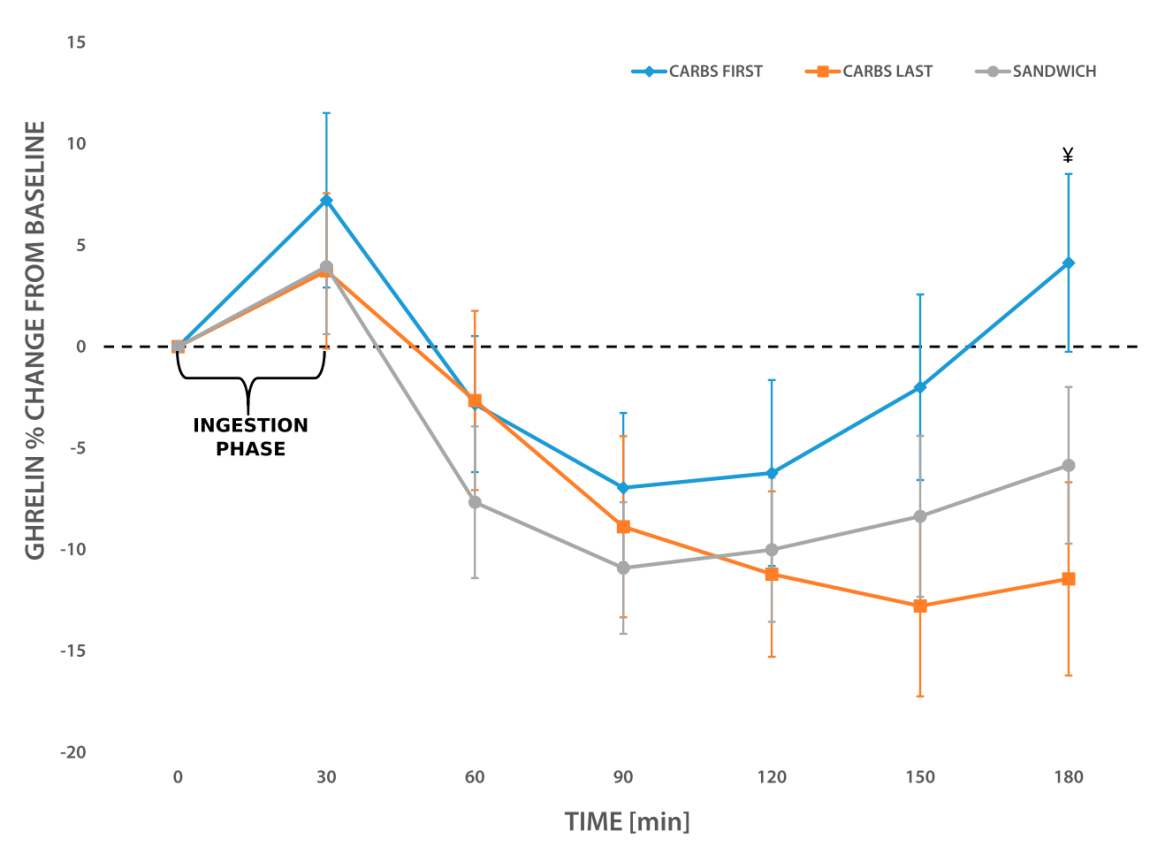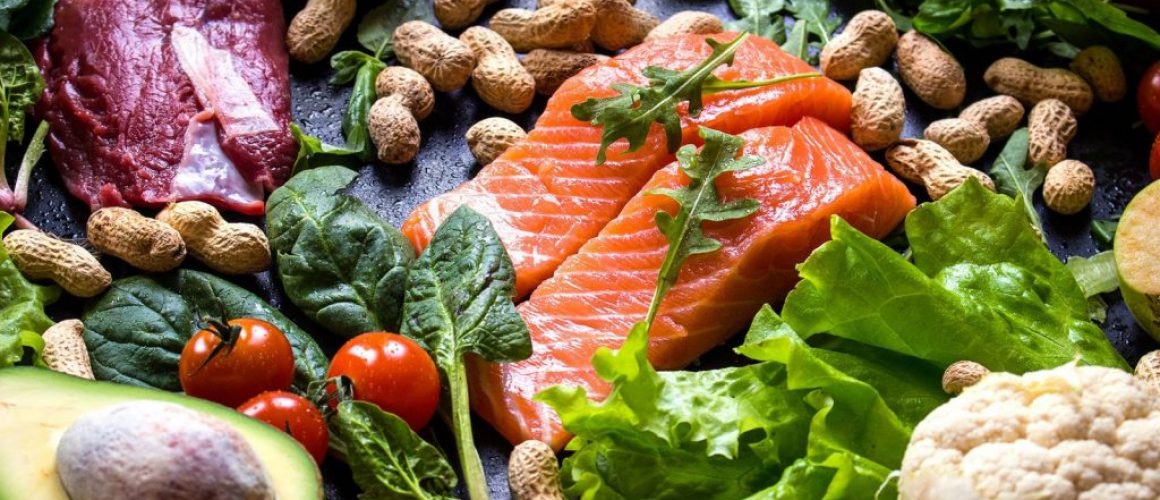Food Order or how to lose weight without exercise and diets
Modern “trendy” diets, aka Keto, Paleo, Carnivor, Vegan etc., made us perceive carbohydrates as evil. There are so many things that impact the way our bodies absorb and process foods. Every person is unique, with his set of hormones, digestive microflora, physical and mental stress loads etc… When it comes to developing a healthy individual diet a lot of variables need to be taken to the account: macronutrient content, caloric load, glycemic index, meal timing and a lot more.
For a while I’ve been wondering if the order we consume nutrients during the meal impact glucose response. I’ve been thinking, will it change anything if we eat proteins first and carbs later or in reverse order. Eventually everything mixes in the stomach anyways, so is there is a difference to the order we eat? I found the answer and I am excited to share my finding with you.
After searching for a while I found this recent research made by Dr. Alpana P. Shukla that brings up the term – food order. The term “food order” refers to the sequence of the nutrients consumed during the meal. Turns out that timing of carbohydrates consumption during a meal has significant impact on the blood glucose level response. The research shown that when the carbohydrate component of the meal is consumed at the end of the meal or last, the effect on the glucose level will be way smaller that if the carbs would be consumed on the beginning of the meal. In other words, if you start your meal from eating proteins and vegetables first and save the carbs for the end, it wont cause the blood sugar level go up high. The table below shows that carbs eaten last resulted in 37% less of a blood sugar spike and 49,6% less of insulin response:

This is fascinating! Simply by switching the order you eat your food you can control you glucose and insulin levels in control and loose or maintain your weight. I am also fascinated to see how it can help people with diabetes and other insulin related deceases.
Protein pre-loading. Another, related study showed that taking whey protein drink shortly before a high-glycaemic-index meal (your favorite pancakes or pasta), lowered the insulin response by 28%:
“The results showed that over the whole 180 min post-meal period, glucose levels were reduced by 28% after whey pre-load with a uniform reduction during both early and late phases”, (Jakubowicz, D, July 10, 2014).
The study published by The American Journal of Clinical Nutrition in July 2005 proved the previous one:
“Whey proteins have insulinotropic effects and reduce the postprandial glycemia in healthy subjects. The mechanism is not known, but insulinogenic amino acids and the incretin hormones seem to be involved”, (Anders H Frid, July 1, 2005).
I like how they put “the mechanism is not known” in a study, but it doesn’t matter. What matters to us that is it works. Simply have a whey protein before your carb loaded meal and you won’t skyrocket your blood glucose levels up. When choosing whey protein, I suggest looking at isolate as it usually has the least amount of added sugars. Make sure you check the label for sugars content as you don’t need more than 3-5 g of sugars per scoop.
Does eating this way impact satiety? Yes it does. The research showed that protein consumed first, suppressed the ghrelin hormone level. Ghrelin is the “hunger hormone” because it stimulates appetite, increases food intake and promotes fat storage. Good news, keeping your food in order will make you feel more full and you will eat less.
Here is the study published by Diabetes Care journal. The experiment was done in 3 ways:
- Carbohydrate-first meal: carbohydrate (bread and orange juice), followed 10 min later by protein (chicken) and vegetables;
- Carbohydrate-last meal: protein and vegetables, followed 10 min later by carbohydrate;
- Sandwich: all meal components together, each half consumed over 10 min with a 10-min interval in between.
Below are the results:

Main takeaways:
- The order in which you eat carbs and proteins matter. It is not only “how much” and “what not to eat”. Optimal timing of carbohydrate consumption during a meal have a big impact on blood glucose levels and as result on your health and body composition;
- You can loose weight by simply eating protein and vegetables first and carbohydrates at the end;
- Never eat carbohydrates alone. They should be consumed as a part of the meal, followed by protein intake;
- Taking a whey protein drink before meal reduces blood glucose spike;
- Eating proteins first make you feel more full for longer;
References:
-
Shukla AP, Dickison M, Coughlin N, et al. The impact of food order on postprandial glycaemic excursions in prediabetes. Diabetes Obes Metab. 2018;1–5. https://doi.org/10.1111/dom.13503
- Aronne, L. J. (2018, February 23). Effect of Food Order on Ghrelin Suppression. Retrieved November 11, 2018, from http://care.diabetesjournals.org/content/early/2018/02/22/dc17-2244
- Shukla, A. P., Iliescu, R. G., Thomas, C. E., & Aronne, L. J. (2015, July 01). Food Order Has a Significant Impact on Postprandial Glucose and Insulin Levels. Retrieved November 11, 2018, from http://care.diabetesjournals.org/content/38/7/e98
- Jakubowicz, D., Froy, O., Ahrén, B., Boaz, M., Landau, Z., Bar-Dayan, Y., . . . Wainstein, J. (2014, July 10). Incretin, insulinotropic and glucose-lowering effects of whey protein pre-load in type 2 diabetes: A randomised clinical trial. Retrieved November 11, 2018, from https://link.springer.com/article/10.1007/s00125-014-3305-x?TB_iframe=true&width=921.6&height=921.6
- Anders H Frid, Mikael Nilsson, Jens Juul Holst, Inger ME Björck; Effect of whey on blood glucose and insulin responses to composite breakfast and lunch meals in type 2 diabetic subjects, The American Journal of Clinical Nutrition, Volume 82, Issue 1, 1 July 2005, Pages 69–75, https://doi.org/10.1093/ajcn/82.1.69
